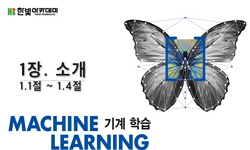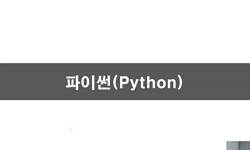이 연구는 과학적 논증 담화에 대한 자동 채점의 성능 개선 방향을 탐색하였으며, 자동 채점 모델을 활용하여 논증 담화의 양상과 패턴을 분석하였다. 이를 위해 과학적 논증 수업에서 발생...
http://chineseinput.net/에서 pinyin(병음)방식으로 중국어를 변환할 수 있습니다.
변환된 중국어를 복사하여 사용하시면 됩니다.
- 中文 을 입력하시려면 zhongwen을 입력하시고 space를누르시면됩니다.
- 北京 을 입력하시려면 beijing을 입력하시고 space를 누르시면 됩니다.

기계 학습을 활용한 논증 수준 자동 채점 및 논증 패턴 분석 = Automated Scoring of Argumentation Levels and Analysis of Argumentation Patterns Using Machine Learning
한글로보기https://www.riss.kr/link?id=A107791527
- 저자
- 발행기관
- 학술지명
- 권호사항
-
발행연도
2021
-
작성언어
-
- 주제어
-
등재정보
KCI등재
-
자료형태
학술저널
- 발행기관 URL
-
수록면
203-220(18쪽)
-
KCI 피인용횟수
0
- DOI식별코드
- 제공처
- 소장기관
-
0
상세조회 -
0
다운로드
부가정보
국문 초록 (Abstract)
이 연구는 과학적 논증 담화에 대한 자동 채점의 성능 개선 방향을 탐색하였으며, 자동 채점 모델을 활용하여 논증 담화의 양상과 패턴을 분석하였다. 이를 위해 과학적 논증 수업에서 발생한 학생 발화를 대상으로 논증 수준을 평가하는 자동 채점을 수행하였다. 이 자동채점의 데이터셋은 4가지 단위의 논증 피처와 논증 수준 평가틀로 구성되었다. 특히, 자동 채점에 논증 패턴을 반영하기 위하여 논증 클러스터와 n-gram을 활용하였다. 자동 채점 모델은 3가지의 지도 학습 기법으로 구성되었으며, 그 결과 총 33개의 자동 채점 모델이 구성되었다. 자동 채점의 결과, 최대 85.37%, 평균 77.59%의 채점 정확도를 얻었다. 이 과정에서 논증 담화의 패턴이 자동 채점의 성능을 개선하는 주요한 피처임을 확인하였다. 또한, 의사결정 나무와 랜덤 포레스트의 모델을 통하여 과학적 논증 수준에 따른 논증의 양상과 패턴을 분석하였다. 이를 통하여 주장, 자료와 함께 정당화가 체계적으로 구성된 과학적 논증과 자료에 대한 활발한 상호작용이 이루어진 과학적 논증이 논증 수준의 발달을 이끈다는 점 등을 확인하였다. 이와 같은 자동 채점 모델의 해석은 논증 패턴을 분석하는 새로운 연구 방법을 제언하는 것이다.
다국어 초록 (Multilingual Abstract)
We explored the performance improvement method of automated scoring for scientific argumentation. We analyzed the pattern of argumentation using automated scoring models. For this purpose, we assessed the level of argumentation for student’s scienti...
We explored the performance improvement method of automated scoring for scientific argumentation. We analyzed the pattern of argumentation using automated scoring models. For this purpose, we assessed the level of argumentation for student’s scientific discourses in classrooms. The dataset consists of four units of argumentation features and argumentation levels for episodes. We utilized argumentation clusters and n-gram to enhance automated scoring accuracy. We used the three supervised learning algorithms resulting in 33 automatic scoring models. As a result of automated scoring, we got a good scoring accuracy of 77.59% on average and up to 85.37%. In this process, we found that argumentation cluster patterns could enhance automated scoring performance accuracy. Then, we analyzed argumentation patterns using the model of decision tree and random forest. Our results were consistent with the previous research in which justification in coordination with claim and evidence determines scientific argumentation quality. Our research method suggests a novel approach for analyzing the quality of scientific argumentation in classrooms.
참고문헌 (Reference)
1 최준, "한국어의 정형화된 표현 연구" 담화·인지언어학회 17 (17): 163-190, 2010
2 하민수, "학습 도구로서의 서술형 평가 그리고 인공지능의 활용: WA3I 프로젝트 사례" 한국현장과학교육학회 13 (13): 271-282, 2019
3 길호현, "텍스트마이닝을 위한 한국어 불용어 목록 연구" 우리말글학회 78 : 1-25, 2018
4 이만형, "전문가의 형태소 분류를 활용한 과학 논증 자동 채점" 한국과학교육학회 40 (40): 321-336, 2020
5 신호심, "원운동 학습 상황에서 Toulmin의 논의구조(TAP)와 다이어그램을 이용한 대화적 논의과정 분석틀 개발" 한국과학교육학회 32 (32): 1007-1026, 2012
6 이경건, "머신 러닝을 활용한 과학 논변 구성 요소 코딩 자동화 가능성 탐색 연구" 한국과학교육학회 38 (38): 219-234, 2018
7 김승주, "논증적 글쓰기 과제의 자동 채점을 위한 N-gram 자질의 활용 가능성 탐색" 한국작문학회 (41) : 37-62, 2019
8 맹승호, "논증 담화 분석 연구의 방법론적 고찰: 논증활동의 협력적 구성과 인식적 실행의 분석을 중심으로" 한국과학교육학회 33 (33): 840-862, 2013
9 남정희, "논의를 강조한 탐구적 과학 글쓰기(Science Writing Heuristic)의 중학교 과학 수업에의 적용" 한국과학교육학회 28 (28): 922-936, 2008
10 양일호, "과학적 논증과정 평가를 위한 루브릭 개발" 한국과학교육학회 29 (29): 203-220, 2009
1 최준, "한국어의 정형화된 표현 연구" 담화·인지언어학회 17 (17): 163-190, 2010
2 하민수, "학습 도구로서의 서술형 평가 그리고 인공지능의 활용: WA3I 프로젝트 사례" 한국현장과학교육학회 13 (13): 271-282, 2019
3 길호현, "텍스트마이닝을 위한 한국어 불용어 목록 연구" 우리말글학회 78 : 1-25, 2018
4 이만형, "전문가의 형태소 분류를 활용한 과학 논증 자동 채점" 한국과학교육학회 40 (40): 321-336, 2020
5 신호심, "원운동 학습 상황에서 Toulmin의 논의구조(TAP)와 다이어그램을 이용한 대화적 논의과정 분석틀 개발" 한국과학교육학회 32 (32): 1007-1026, 2012
6 이경건, "머신 러닝을 활용한 과학 논변 구성 요소 코딩 자동화 가능성 탐색 연구" 한국과학교육학회 38 (38): 219-234, 2018
7 김승주, "논증적 글쓰기 과제의 자동 채점을 위한 N-gram 자질의 활용 가능성 탐색" 한국작문학회 (41) : 37-62, 2019
8 맹승호, "논증 담화 분석 연구의 방법론적 고찰: 논증활동의 협력적 구성과 인식적 실행의 분석을 중심으로" 한국과학교육학회 33 (33): 840-862, 2013
9 남정희, "논의를 강조한 탐구적 과학 글쓰기(Science Writing Heuristic)의 중학교 과학 수업에의 적용" 한국과학교육학회 28 (28): 922-936, 2008
10 양일호, "과학적 논증과정 평가를 위한 루브릭 개발" 한국과학교육학회 29 (29): 203-220, 2009
11 김미숙, "과학적 논의를 활용한 과정중심평가에서의 교사 피드백 유형 사례 연구" 한국과학교육학회 40 (40): 271-289, 2020
12 González-Howard, M, "Variation in how teachers support critique in argumentation discussions" 2017
13 Liu, O. L., "Validation of automated scoring of science assessments" 53 (53): 215-233, 2016
14 Wachsmuth, H., "Using argument mining to assess the argumentation quality of essays" 1680-1691, 2016
15 McNeill, K. L., "Thinking with Data" Taylor & Francis 233-265, 2007
16 Toulmin, S., "The uses of argument" Cambridge University Press 1958
17 Jeong, A. C., "The sequential analysis of group interaction and critical thinking in online" 17 (17): 25-43, 2003
18 Ryu, S., "The influence of group dynamics on collaborative scientific argumentation" 11 (11): 335-351, 2015
19 Osborne, J. F., "The development and validation of a learning progression for argumentation in science" 53 (53): 821-846, 2016
20 Erduran, S., "TAPping into argumentation : Developments in the application of Toulmin’s argument pattern for studying science discourse" 88 (88): 915-933, 2004
21 Kelly, G. J., "Students’ reasoning about electricity : Combining performance assessments with argumentation analysis" 20 (20): 849-871, 1998
22 Duschl, R., "Science education in three-part harmony : Balancing conceptual, epistemic, and social learning goals" 32 (32): 268-291, 2008
23 Tsoumakas, G., "Random k-labelsets: An ensemble method for multilabel classification" 406-417, 2007
24 Breiman, L., "Random forests" 45 (45): 5-32, 2001
25 Park, C., "R data mining" Kyowoo 2015
26 Sampson, V., "Perspectives on scientific argumentation" Springer 235-264, 2012
27 Vygotsky, L. S., "Mind in society: The development of higher psychological processes" Harvard University Press 1978
28 Park, E. L., "KoNLPy: Korean natural language processing in Python" 133-136, 2014
29 Grooms, J., "How concept familiarity and experience with scientific argumentation are related to the way groups participate in an episode of argumentation" 55 (55): 1264-1286, 2018
30 Zohar, A., "Fostering students’ knowledge and argumentation skills through dilemmas in human genetics" 39 (39): 35-62, 2002
31 Driver, R., "Establishing the norms of scientific argumentation in classrooms" 84 (84): 287-312, 2000
32 Osborne, J., "Enhancing the quality of argumentation in school science" 41 (41): 994-1020, 2004
33 Ford, M., "Disciplinary authority and accountability in scientific practice and learning" 92 (92): 404-423, 2008
34 Nielsen, J. A., "Dialectical features of students’ argumentation : A critical review of argumentation studies in science education" 43 (43): 371-393, 2013
35 Fauzi, M. A., "Automatic essay scoring system using N-gram and cosine similarity for gamification based E-learning" 151-155, 2017
36 Sampson, V., "Assessment of the ways students generate arguments in science education : Current perspectives and recommendations for future directions" 92 (92): 447-472, 2008
37 Clark, D. B., "Assessing dialogic argumentation in online environments to relate structure, grounds, and conceptual quality" 45 (45): 293-321, 2008
38 Henderson, J. B., "Argumentation in Chemistry Education" Royal Society of Chemistry 79-105, 2019
39 KICE(Korea Institute Of Curriculum & Evaluation), "A Study on the Development and Introduction of an Automated Scoring Program(RRI 2006-6)"
동일학술지(권/호) 다른 논문
-
고경력 초등 교사의 생애사를 통해 본 과학 수업의 변화
- 한국과학교육학회
- 홍지영 ( Jiyeong Hong )
- 2021
- KCI등재
-
- 한국과학교육학회
- 김종욱 ( Jong-uk Kim )
- 2021
- KCI등재
-
과학 학습에서 유발되는 과학상태호기심 및 과학상태불안 수준에 따른 학습효과
- 한국과학교육학회
- 강지훈 ( Jihoon Kang )
- 2021
- KCI등재
-
변화의 주체로서 과학 교사의 행위주체성 탐색 -COVID-19에 따른 원격 수업 실행 사례를 중심으로-
- 한국과학교육학회
- 이혜경 ( Hyekeoung Lee )
- 2021
- KCI등재
분석정보
인용정보 인용지수 설명보기
학술지 이력
| 연월일 | 이력구분 | 이력상세 | 등재구분 |
|---|---|---|---|
| 2027 | 평가예정 | 재인증평가 신청대상 (재인증) | |
| 2021-01-01 | 평가 | 등재학술지 유지 (재인증) |  |
| 2018-03-29 | 학술지명변경 | 외국어명 : Journal of the Korean Association for in Science Education -> Journal of the Korean Association for Science Education |  |
| 2018-01-01 | 평가 | 등재학술지 유지 (등재유지) |  |
| 2015-01-01 | 평가 | 등재학술지 유지 (등재유지) |  |
| 2011-01-01 | 평가 | 등재학술지 유지 (등재유지) |  |
| 2009-01-01 | 평가 | 등재학술지 유지 (등재유지) |  |
| 2007-04-26 | 학술지명변경 | 외국어명 : Journal of the Korean Association for Research in Science Education -> Journal of the Korean Association for in Science Education |  |
| 2007-04-03 | 학회명변경 | 영문명 : The Korean Association For Research In Science Education -> The Korean Association for Science Education |  |
| 2007-01-01 | 평가 | 등재학술지 유지 (등재유지) |  |
| 2005-01-01 | 평가 | 등재학술지 유지 (등재유지) |  |
| 2002-01-01 | 평가 | 등재학술지 선정 (등재후보2차) |  |
| 1999-07-01 | 평가 | 등재후보학술지 선정 (신규평가) |  |
학술지 인용정보
| 기준연도 | WOS-KCI 통합IF(2년) | KCIF(2년) | KCIF(3년) |
|---|---|---|---|
| 2016 | 1.87 | 1.87 | 1.69 |
| KCIF(4년) | KCIF(5년) | 중심성지수(3년) | 즉시성지수 |
| 1.66 | 1.54 | 2.133 | 0.47 |





 ScienceON
ScienceON KISS
KISS







